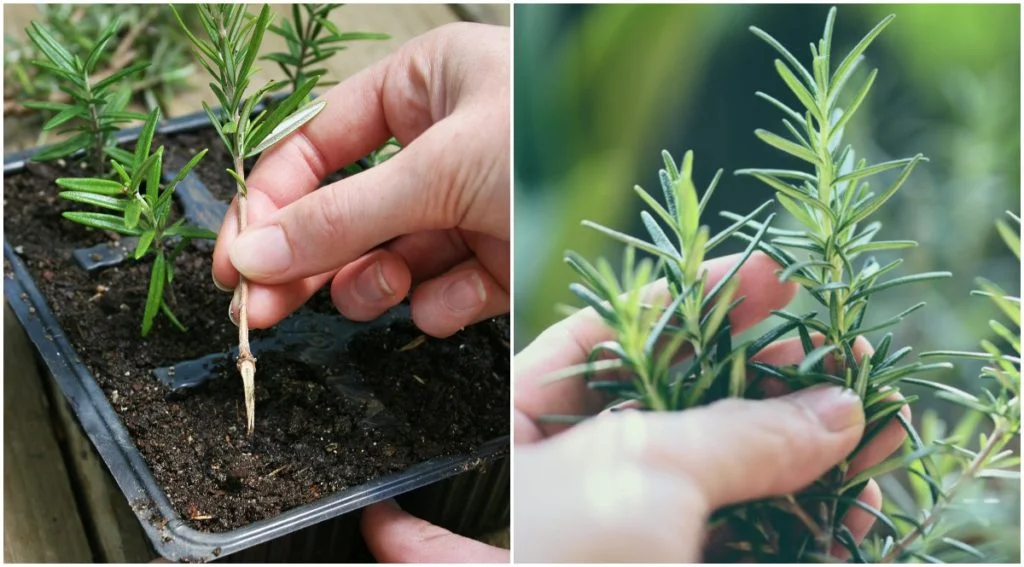Growing rosemary in pots is an excellent way to enjoy this aromatic herb, either for cooking or as an ornamental plant. Here’s a simplified guide for cultivating rosemary both from cuttings and seeds:
Materials Needed:
- Rosemary twigs (cuttings) or seeds
- Small pots for cuttings
- Larger pots for mature plants (with drainage holes)
- Well-draining potting mix (with sand or perlite)
- Rooting hormone (optional for cuttings)
- Watering can or spray bottle
- Clear plastic bag or plastic dome (for cuttings)
- Organic fertilizer
Growing Rosemary from Cuttings:
Step-by-Step Guide:
- Selecting and Preparing the Cuttings:
- Choose healthy, non-flowering rosemary stems about 4-6 inches long.
- Strip the lower 2 inches of leaves from the cutting.
- (Optional) Dip the cut end in rooting hormone to promote faster rooting.
- Planting the Cuttings:
- Fill small pots with a well-draining potting mix (with sand or perlite).
- Insert the cut end of each cutting about 1-2 inches deep into the soil.
- Water the soil gently until evenly moist.
- Creating a Humid Environment:
- Cover each pot with a clear plastic bag or dome to retain humidity.
- Place pots in a location that receives bright, indirect light.
- Caring for the Cuttings:
- Keep the soil moist but not soggy. Mist the plants if the air is dry.
- After 4-6 weeks, gently tug the cuttings to check for root development.
- Transplanting and Ongoing Care:
- Once rooted, transplant the cuttings into larger pots with a well-draining potting mix.
- Place the pots in a sunny spot (6-8 hours of sunlight per day).
- Water when the top inch of soil feels dry.
- Fertilize every 4-6 weeks during the growing season.
Growing Rosemary from Seeds:
Step-by-Step Guide:
- Seed Preparation and Sowing:
- Start seeds indoors 8-10 weeks before the last frost date.
- Fill seed trays or small pots with seed-starting mix.
- Sprinkle rosemary seeds on the surface, cover lightly with ¼ inch of soil, and mist gently.
- Germination:
- Place the trays or pots in a warm, bright area, or use grow lights.
- Keep the soil moist, but avoid overwatering.
- Germination can take 2-4 weeks.
- Transplanting Seedlings:
- Once seedlings develop true leaves, transplant them into larger pots filled with well-draining potting mix.
- Position the pots in a sunny spot.
- Caring for Seedlings and Mature Plants:
- Water when the top inch of soil dries out.
- Ensure the plants receive 6-8 hours of sunlight daily.
- Fertilize every 4-6 weeks during the growing season.
- Prune regularly to encourage bushier growth.
Tips for Success:
- Light: Rosemary thrives in 6-8 hours of direct sunlight daily.
- Watering: Allow the soil to dry slightly between waterings to prevent root rot.
- Humidity: Rosemary prefers drier conditions, so avoid over-misting.
- Temperature: Keep plants above 40°F (4°C); they don’t tolerate frost well.
- Pests: Watch out for common pests like aphids, spider mites, and powdery mildew. Treat with natural pest control solutions like neem oil or insecticidal soap if needed.

